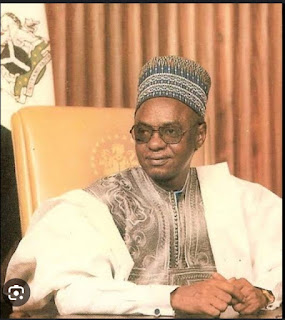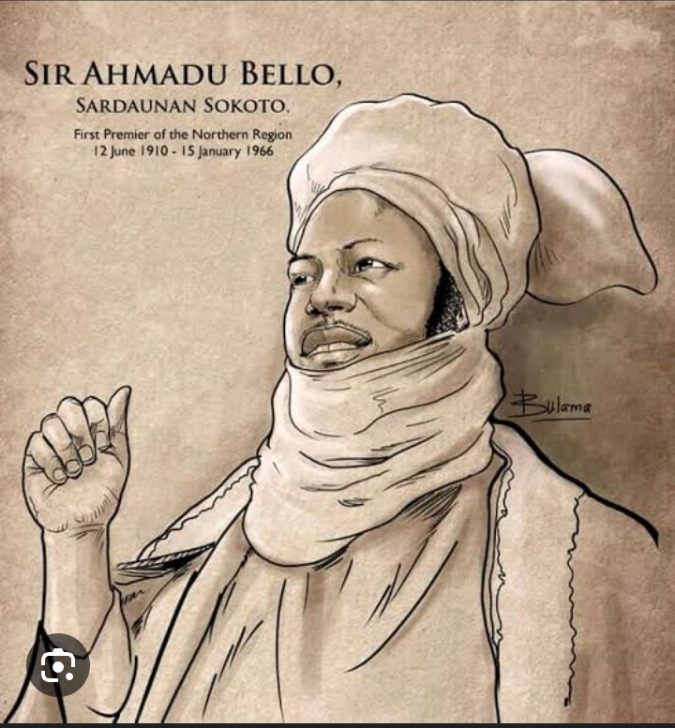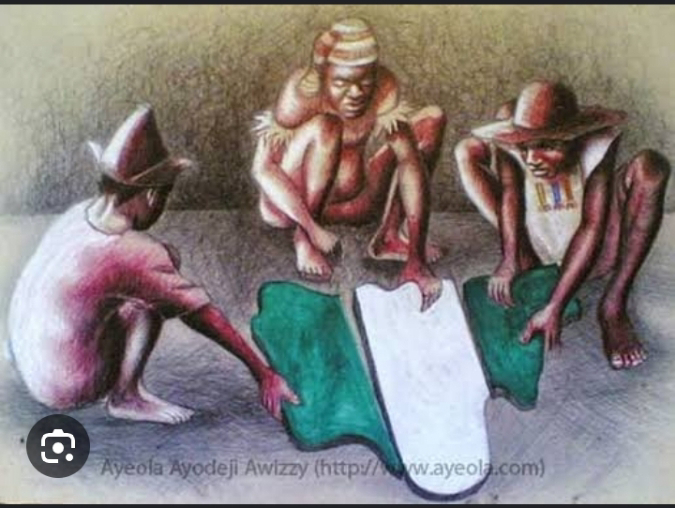The Second Republic Of 1979 And The Fall Of Nigeria's Second Civilian Government
Background/History
Following the assassination of Nigerian military Head of State General Murtala Muhammad in 1976, his successor General Olusegun Obasanjo initiated the transition process to terminate military rule in 1979. A new constitution was drafted which saw the Westminster system of government previously used in the First Republic abolished for an American style presidential system. The 1979 Constitution mandated that political parties and cabinet positions reflect the "federal character" of the nation, political parties were required to be registered in at least two-thirds of the states, and each state was required to produce at least one cabinet member.
The first election under the second Republic where held in July and August 1979, and the military government handed over power to a new civilian government under president Shehu Shagari on October 1st 1979. Nigeria's second Republic was born amid great expectations. Oil prices were high and revenue was on the increase, it appeared that unlimited development was possible. Unfortunately the euphoria was short-lived and the Second Republic did not survive its infancy.
Sturucture
1979 Constitution and it's Features
- Presidential system of government
- Political Parties
- Bicameral legisture (House of Senate/Representatives)
- Fundamental human rights
- Single Executive
- Separation of power
- Checks and balances
Political Parties And Alliances
Five major political parties competed for power in the first elections in 1979. As might be expected there was some continuity between the old parties of the First Republic and the new parties of the Second Republic, probably the first signs of failure. For example the National Party of Nigeria (NPN) succeeded the Northern People's Congress (NPC) and just like it predecessor the party dominated the North but contrary to the NPC, the NPN received support from non-Igbo states in Southeastern Nigeria. The United Party of Nigeria succeeded the AG with Obafemi Awolowo at it's head it's support was mostly from Yoruba states. The Nigerian People's Party (NPP) the successor of the NCNC was predominantly Igbo and had Azikiwe as leader. The Great Nigerian People's Party emerged in the North from a failed attempt to from an alliance with non-Hausa Fulani minority. Finally the People's Redemption Party was the successor of the Northern Elements Progressive Union and it was led by the radical Amino Kano.
Just as the NPC dominated the First Republic, it's successor, the NPN dominated the second Republic, Alhaji Shehu Shagari won the presidency defeating Azikiwe in a close and controversial vote. The NPN also took 36 of 95 senate seats, 165 of 443 House of Representatives seats and won control of seven states (Sokoto, Niger, Rivers, Bauchi, Benue, Cross River and kwara). The NPP took three states (Anambra, Imo and Plateau), 16 Senate seats and 78 House of Representatives seats. Just like the First Republic the NPC and NPP formed coalition but again it was shaky due to the conflict of interest between the two parties. The UPN came in with the second largest number of seats and effectively formed the official opposition. The UPN took five states (Lagos, Oyo, Ogun, Ondo and Bendel), 28 Senate seats and 111 House of Representatives seats. The Great Nigeria's People Party managed to win two states (Borno and Gongola), 8 Senate seats and 43 House of Representatives seats. The People's Redemption Party won Kano and governorship of Kaduna as well as 7 Senate seats and 49 House of Representatives seats.
Collapse
Just as mentioned earlier the Second Republic was full of promises and ambition with the emergence of the oil boom, but it was destroyed mainly by corruption, which has been a serious problem since the Civil War, and it still persist to this day. Several instances of corruption after the Civil War include the cement scandal of the early 1970s, the Festival of African Culture (FESTAC) in Lagos and the development of Abuja as the new federal capital. Corruption during the Second Republic was even greater, major scandals involve the Federal Housing Scheme, the National Youth Service Corps, the Nigerian External Telecommunications, the Federal Mortgage Bank, the Central Bank of Nigeria and the Nigerian National Supply Company, basically all government administrations.
As elections approached in August 1983, economic decline that reflected low oil prices, widespread corruption and continued government spending at record levels was proof that the Second Republic was in bad shape, it was estimated over 14 billion US dollars was embezzled from 1979 to 1983. The second elections of the Second Republic illustrated the corruption that had been a major factor since 1979, the election was the last of the Second Republic. When the result were released in 1983 it was clear that they had been fraud. The NPN increased its control of states from 7 to 12, Shagari was reelected President, the NPN also gained 61 of 95 Senate seats and 307 of 450 House of Representatives seats. Not even the NPN supporters were expecting such results, on December 31, 1983 Major General Muhammadu Buhari overthrew Shagari's government, citing reasons of corruption and administrative incompetence, Shagari handed over power without any struggle.



Comments
Post a Comment